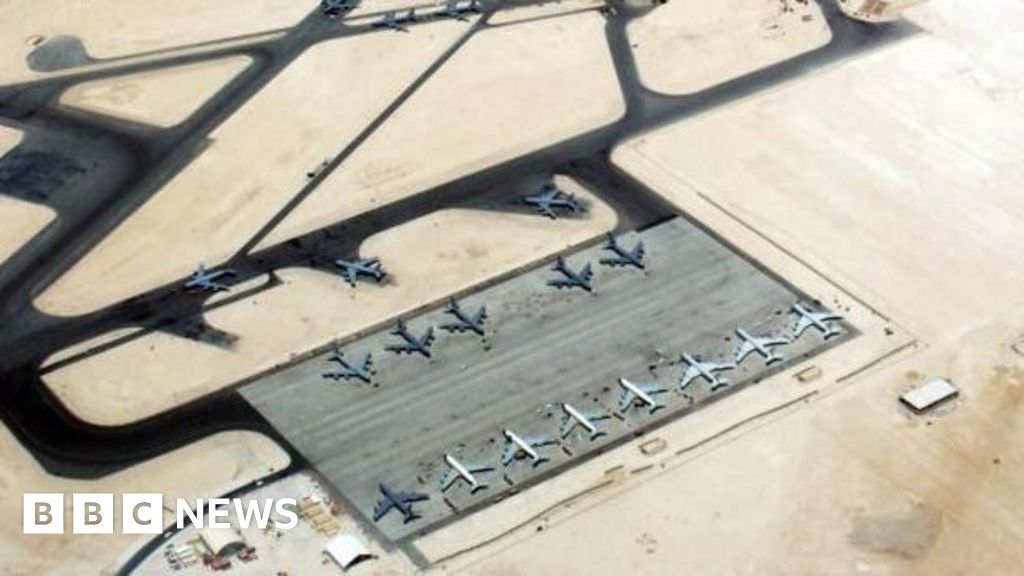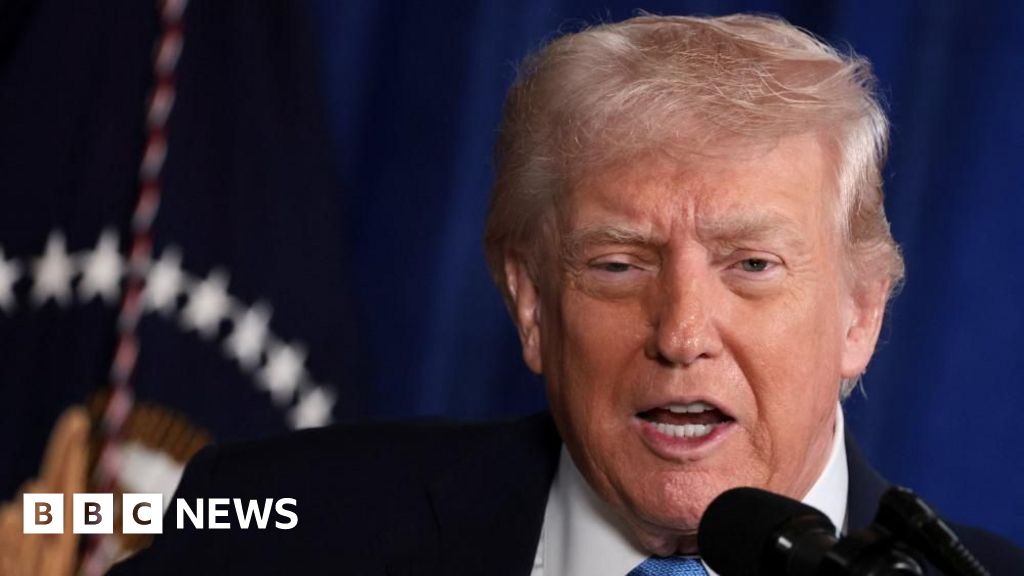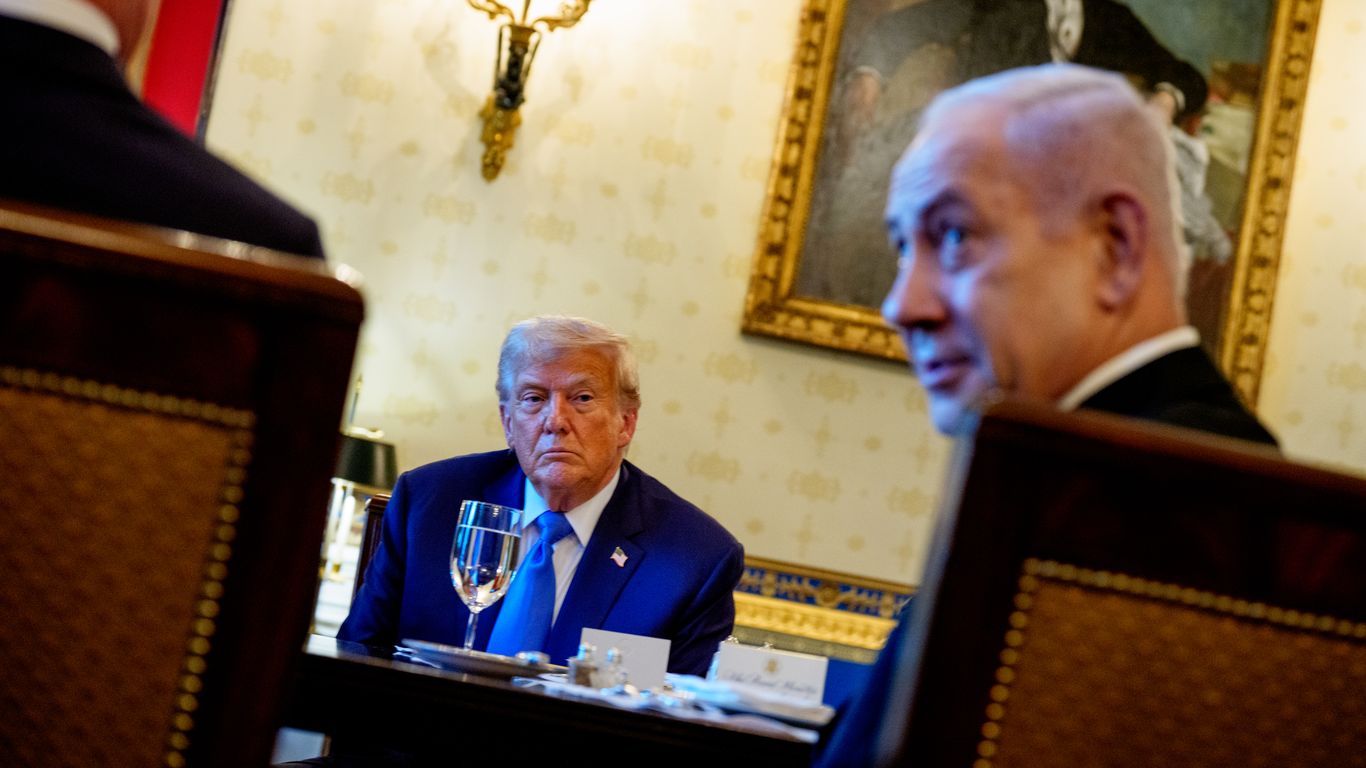The Gifted Jet: A Symbol of Strong Diplomatic Relations between Qatar and the US

About the People Mentioned
Donald Trump
Donald John Trump, born June 14, 1946, in Queens, New York, is an American businessman, media personality, and politician. He graduated from the University of Pennsylvania’s Wharton School in 1968 with a degree in economics. In 1971, he took over his family’s real estate business, renaming it the Trump Organization, through which he expanded into building and managing skyscrapers, hotels, casinos, and golf courses. Trump gained widespread fame as the host of the reality TV show *The Apprentice* from 2004 to 2015, which helped establish his public persona as a successful entrepreneur. Trump entered politics as a Republican and was elected the 45th president of the United States, serving from 2017 to 2021. His presidency was marked by significant policy actions including tax cuts, deregulation, the appointment of three Supreme Court justices, renegotiation of trade agreements (notably replacing NAFTA with the USMCA), and a focus on immigration control including border wall expansion. He withdrew the U.S. from international agreements such as the Paris Climate Accord and the Iran nuclear deal, and engaged in a trade war with China. His administration’s response to the COVID-19 pandemic was criticized for downplaying the virus’s severity. Trump was impeached twice by the House of Representatives—first in 2019 for abuse of power and obstruction, and again in 2021 for incitement of insurrection—but was acquitted by the Senate both times. After losing the 2020 election to Joe Biden, Trump challenged the results, culminating in the January 6, 2021, Capitol riot. He remains a central figure in American politics, having won the 2024 presidential election and returned as the 47th president in 2025, continuing to promote policies aimed at economic growth, border security, and military strength[1][2][3][4].
Qatari prime minister
Sheikh Mohammed bin Abdulrahman bin Jassim Al Thani is the current Prime Minister of the State of Qatar, appointed on March 7, 2023. He also serves as the Minister of Foreign Affairs, a position he has held since January 27, 2016. Born on November 1, 1980, in Doha, Sheikh Mohammed is a member of Qatar’s ruling Al Thani family. He holds a bachelor's degree in economics and business administration from Qatar University. Before becoming Prime Minister, he served as Deputy Prime Minister from 2017 to 2023 and chaired the Qatar Investment Authority from 2018 to 2023. Since 2014, he has been Chairman of the Qatar Fund for Development and a member of Qatar’s Supreme Council for Economic Affairs and Investments. In his role as Prime Minister, Sheikh Mohammed advises Emir Sheikh Tamim bin Hamad Al Thani on government formation and assists in carrying out the Emir's duties. He leads the Council of Ministers, overseeing coordination among ministries to ensure unified and integrated government action. As Foreign Minister, Sheikh Mohammed has focused on expanding Qatar’s bilateral and multilateral strategic relations, enhancing the country’s regional and international standing, and promoting peace and security. He has played a key role in mediating regional conflicts, helping to reduce violence and facilitating peace agreements. Recently, Sheikh Mohammed has been vocal in responding to security threats against Qatar, condemning attacks on Qatari soil as violations of international law and emphasizing the country’s commitment to sovereignty and regional stability. Under his leadership, Qatar continues its diplomatic efforts to balance regional relations and maintain its prominent role on the global stage.
About the Organizations Mentioned
Boeing
Boeing is a global leader in aerospace, renowned for designing, manufacturing, and supporting commercial airplanes, defense systems, and space technologies. Founded in 1916 by William E. Boeing, the company has played a pivotal role in shaping modern aviation and space exploration. Over its more than a century of operation, Boeing has achieved numerous milestones, including pioneering the development of jet airliners, launching the first commercial satellite, and building critical components for NASA’s space missions. Boeing’s core business is divided into three main segments: Commercial Airplanes, Defense, Space & Security, and Global Services. Its commercial aircraft, such as the 737 MAX and 787 Dreamliner, are staples of airlines worldwide, known for their advanced engineering and efficiency. In defense and space, Boeing delivers cutting-edge military aircraft, missile systems, and spacecraft, including the Starliner and contributions to the International Space Station. In recent years, Boeing has navigated significant challenges, including the 737 MAX grounding and production delays, but has made strides in restructuring and enhancing safety protocols. As of 2025, the company is rebounding, with increased production rates for the 737, a growing backlog of over 5,900 commercial airplanes, and a focus on innovation and sustainability. Boeing is committed to reducing aviation’s carbon footprint, actively promoting the adoption of sustainable aviation fuels (SAF) and investing in next-generation technologies. Boeing’s market outlook remains robust, with projections indicating strong demand for new aircraft and a $4.7 trillion services market through 2044. The company’s mission—to protect, connect, and explore our world and beyond—continues to drive its pursuit of excellence, making Boeing a cornerstone of the global aerospace industry.
Air Force
## Overview The **United States Air Force (USAF)** is the aerial and space warfare branch of the U.S. Armed Forces and one of the eight uniformed services. As a key component of the Department of the Air Force—which also oversees the U.S. Space Force—the USAF is responsible for organizing, training, and equipping airmen to conduct global operations in air, space, and cyberspace domains[1][2]. It is structured hierarchically, with top-level leadership including the Secretary of the Air Force and the Chief of Staff of the Air Force, followed by major commands (MAJCOMs), numbered air forces (NAFs), wings, groups, and squadrons, each with specialized functions and responsibilities[1]. ## History The USAF traces its origins to the U.S. Army Air Corps, established in 1926, and became an independent branch of the military in 1947 under the National Security Act. Its creation marked a recognition of airpower’s strategic importance following the decisive role of aviation in World War II. Over the decades, the Air Force has evolved from a force focused on manned aircraft to one integrating advanced technology, unmanned systems, and space operations. ## Key Achievements The Air Force has been pivotal in numerous conflicts, including World War II, the Korean War, Vietnam, the Gulf War, and the Global War on Terror. It has also led technological innovations, from the development of stealth aircraft and precision-guided munitions to the deployment of global positioning systems (GPS) and advanced satellite communications. The USAF’s strategic bombers, fighters, and reconnaissance platforms have provided unmatched global reach and situational awareness. ## Current Status Today, the USAF is undergoing significant modernization to address emerging threats, including near-peer competitors, cyber warfare, and the militarization of space. It is retiring legacy aircraft—251 in fiscal year 2025 alone—to free resources for next-generation platforms and technologies[4]. The













